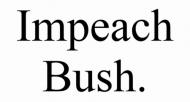Rein in the Stallion Sex
By Maureen Dowd: The New York Times
 Conservatives are having fun e-mailing around the sex scenes in Barbara Boxer's new novel, "A Time to Run." A particular favorite is the equine entwine on Page 210, when "these two fierce animals were coerced into their majestic coupling by at least six people."
Conservatives are having fun e-mailing around the sex scenes in Barbara Boxer's new novel, "A Time to Run." A particular favorite is the equine entwine on Page 210, when "these two fierce animals were coerced into their majestic coupling by at least six people."
"The stallion approached, nostrils flared, hooves lifting with delicate precision, the wranglers hanging on grimly," Ms. Boxer wrote with her co-author, Mary-Rose Hayes. Soon, "the stallion rubbed his nose against the mare's neck and nuzzled her withers. She promptly bit him on the shoulder and, when he attempted to mount, instantly became a plunging devil of teeth and hooves."
The mare's owner remarks that she's hotblooded because she's from Argentina.
Ms. Boxer's literary alter ego, Ellen Fischer, the liberal 5-foot-2 senator from California, also has her share of ecstatic biting and nuzzling.
As when Greg kisses Ellen "long and deep."
"Ellen had never tasted such pent-up, aggressive determination and desire. ... She bit at his lips, heard her own gasping breath - and she knew she really must stop this. ... She felt his competent hands undressing her, and they fell together through the darkness onto his bed. Greg's naked body was long and elegant, and they meshed with ease and grace."
Reading pols' strained attempts at steamy scenes is discomfiting. Like thinking about your parents and sex, it gives you the heebie-jeebies.
"You just don't want to imagine any of these people in their underwear," one Democrat said, laughing.
Besides, Washington types are more consumed with the line-item veto than majestic meshing. The modern history of sex in the capital has been more maladroit du seigneur than droit du seigneur. From Bob Packwood to Clarence Thomas, the men in the middle of sex scandals always seem more dysfunctional than sensual.
The adolescent Bill and Monica pantry trysts were anything but sultry. The president was tormented, dismissing the dalliance as a mere antidote for Oval Office tension.
Monica described their final rendezvous in drab terms: "This was another one of those occasions when I was babbling on about something, and he just kissed me, kind of to shut me up, I think."
Even the most glamorous hookup - J.F.K. and Marilyn Monroe - lost some of its film noir allure after a report of how Marilyn had robotically described it to her shrink: "Marilyn Monroe is a soldier. ... The first duty of a soldier is to obey her commander in chief."
A decade ago, Clintonites had fun passing around passages from Newt Gingrich's thriller "1945," written with William Forstchen, featuring such titillations as biting foreplay, "pouting sex kitten," "exotic mistress" and "after-bout inhalation."
At one point, the mistress of the president's chief of staff sits "athwart" her lover's chest and hisses that he must tell her a secret "or I will make you do terrible things." (Kinkier than the Contract With America?)
When Scooter Libby got in trouble over Valerie Plame, The New Yorker dug out his 1996 book, "The Apprentice," and reviewed its sex scenes. Lauren Collins took note of its homoeroticism and incest, and compared some passages to Penthouse Forum.
Scooter had his own animal erotica: "At age ten the madam put the child in a cage with a bear trained to couple with young girls so the girls would be frigid and not fall in love with their patrons. They fed her through the bars and aroused the bear with a stick when it seemed to lose interest."
Proving that conservatives are not as prudish in fiction as in legislation, Lynne Cheney's 19th-century Wild West book, "Sisters," a sort of distaff "Brokeback Mountain," featured lesbian romps and, oddly, a Republican vice president who dies of a heart attack during sex with his mistress.
In Mrs. Cheney's 1981 novel, a woman says of her lesbian lover: "How well her words describe our love - or the way it would be if we could remove all impediments, leave this place and join together. ... Our lives would flow together, twin streams merging into a single river."
If you'd like to read the rest of this article buy TimesSelect
 Conservatives are having fun e-mailing around the sex scenes in Barbara Boxer's new novel, "A Time to Run." A particular favorite is the equine entwine on Page 210, when "these two fierce animals were coerced into their majestic coupling by at least six people."
Conservatives are having fun e-mailing around the sex scenes in Barbara Boxer's new novel, "A Time to Run." A particular favorite is the equine entwine on Page 210, when "these two fierce animals were coerced into their majestic coupling by at least six people.""The stallion approached, nostrils flared, hooves lifting with delicate precision, the wranglers hanging on grimly," Ms. Boxer wrote with her co-author, Mary-Rose Hayes. Soon, "the stallion rubbed his nose against the mare's neck and nuzzled her withers. She promptly bit him on the shoulder and, when he attempted to mount, instantly became a plunging devil of teeth and hooves."
The mare's owner remarks that she's hotblooded because she's from Argentina.
Ms. Boxer's literary alter ego, Ellen Fischer, the liberal 5-foot-2 senator from California, also has her share of ecstatic biting and nuzzling.
As when Greg kisses Ellen "long and deep."
"Ellen had never tasted such pent-up, aggressive determination and desire. ... She bit at his lips, heard her own gasping breath - and she knew she really must stop this. ... She felt his competent hands undressing her, and they fell together through the darkness onto his bed. Greg's naked body was long and elegant, and they meshed with ease and grace."
Reading pols' strained attempts at steamy scenes is discomfiting. Like thinking about your parents and sex, it gives you the heebie-jeebies.
"You just don't want to imagine any of these people in their underwear," one Democrat said, laughing.
Besides, Washington types are more consumed with the line-item veto than majestic meshing. The modern history of sex in the capital has been more maladroit du seigneur than droit du seigneur. From Bob Packwood to Clarence Thomas, the men in the middle of sex scandals always seem more dysfunctional than sensual.
The adolescent Bill and Monica pantry trysts were anything but sultry. The president was tormented, dismissing the dalliance as a mere antidote for Oval Office tension.
Monica described their final rendezvous in drab terms: "This was another one of those occasions when I was babbling on about something, and he just kissed me, kind of to shut me up, I think."
Even the most glamorous hookup - J.F.K. and Marilyn Monroe - lost some of its film noir allure after a report of how Marilyn had robotically described it to her shrink: "Marilyn Monroe is a soldier. ... The first duty of a soldier is to obey her commander in chief."
A decade ago, Clintonites had fun passing around passages from Newt Gingrich's thriller "1945," written with William Forstchen, featuring such titillations as biting foreplay, "pouting sex kitten," "exotic mistress" and "after-bout inhalation."
At one point, the mistress of the president's chief of staff sits "athwart" her lover's chest and hisses that he must tell her a secret "or I will make you do terrible things." (Kinkier than the Contract With America?)
When Scooter Libby got in trouble over Valerie Plame, The New Yorker dug out his 1996 book, "The Apprentice," and reviewed its sex scenes. Lauren Collins took note of its homoeroticism and incest, and compared some passages to Penthouse Forum.
Scooter had his own animal erotica: "At age ten the madam put the child in a cage with a bear trained to couple with young girls so the girls would be frigid and not fall in love with their patrons. They fed her through the bars and aroused the bear with a stick when it seemed to lose interest."
Proving that conservatives are not as prudish in fiction as in legislation, Lynne Cheney's 19th-century Wild West book, "Sisters," a sort of distaff "Brokeback Mountain," featured lesbian romps and, oddly, a Republican vice president who dies of a heart attack during sex with his mistress.
In Mrs. Cheney's 1981 novel, a woman says of her lesbian lover: "How well her words describe our love - or the way it would be if we could remove all impediments, leave this place and join together. ... Our lives would flow together, twin streams merging into a single river."
If you'd like to read the rest of this article buy TimesSelect












